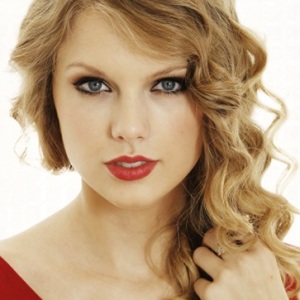The first line of the song’s a joke about hipsters and the video’s shot in 4:3, with a filter making it look like an Instagram picture. Taylor Swift is feeling 22 and maybe just a little ambitious.
The first time I heard of Swift, a coworker was raving about this artist with a song about teardrops on her guitar.
She saw her play a show in New York and was livid about how great she was. It was neat: this was coming from a person who usually listens to heavy, loud aggressive rock. She caught her early, but it wasn’t long before everyone knew about Swift’s music.
Watching her career has been interesting: Swift’s a talented singer and songwriter, starting in a genre that doesn’t allow for a ton of expansion, making music that’s gradually more and more self-aware. She’s grown away from a scene she was a big part of starting, while keeping enough of a presence there to be it’s most important star. It’s interesting. There might not be a more compelling figure in music right now.
Her eponymous first album came out in 2006 and is still on the charts.
The big hit was Teardrops on My Guitar, but the first single was a ballad about the music of Tim McGraw and what it represented in a doomed relationship. Right out of the gate she was name-checking country music royalty, establishing herself in Nashville and shooting videos where young men rode in trucks and hung out in the country.
Within a couple of years, Swift was headlining tours and sharing bills with Faith Hill and John Mayer. Eventually she’d even write a song about him.
She exploded, bringing a new popularity for country. It wasn’t a genre that had ever gone away, but it was on the fringes. It wasn’t cool to like country music in 2006, with maybe an exception made for Johnny Cash. It was something hicks bought at Wal-Mart and listened to while hauling ass in a F-350. In a lot of people’s minds, she legitimized country music. Before long, acts like Mumford & Sons and The Band Perry sprung up in her wake. There’s a glut of young country talent right now.
But as those bands grow in popularity, Swift’s music has grown into something more than just country by rote.
Much has been made of how she wrote songs about ex-boyfriends, but less is said about how her music’s gotten smarter over the years. She started with songs about the boy driving a Chevy truck that got stuck, but before long her music was more personal, more aware of her growing fame and ironic about her fame.
The lead single of her latest album, Red, is as overt about this as anyone’s ever been: she dismisses a deadbeat boyfriend as hiding away “to find your piece of mind / with some indie record that’s much cooler than mine.” Not exactly a subtle shot at indie snobs, dismissing her tunes as breakup music.
She repeatedly shuts her ex down with the stomping chorus: “We are never, ever, ever getting back together.” It’s not a breakup song, it’s a proud statement of I’m done with this. She knows what he thinks of her (he doesn’t even like her music!) and it’s over, so she’s having everyone over. Meanwhile, The Band Perry is still copping from the Country Music Fakebook, unable to turn a breakup into something more than just a feeling of dulled anger. Where Swift is having a party at your expense, they’re just annoyed.
Her new single is “22”, a song about being young and goofing off that sounds like a Kesha jam.
But hidden right in the hook is another shot at the critics: “You don’t know about me / but I bet you want to.”
It’s interesting to think of the Kesha connection: she’s another artist based out of Nashville who writes her own music and has similar problem with perception; as Swift is trying outgrow the shadow of her first hits, Kesha is trying to show she’s more than just a party person, relying on autotune and stagecraft to make music.
Musically, Swift has more in common with Kesha right now than most of her peers: you can slip between “Die Young” and “22” without batting an eye. And Swift’s adopted some of the speak-singing Kesha uses a lot of: listen to the shouts in “22” or the monologue in “We’re Never Ever Getting Back Together”. She’s outgrowing the trappings of country like crazy.
But she’s still keeping one foot in there.
Things have come full circle in a way, as Swift has a duet with McGraw: the driving “Highway Don’t Care”. A while back, on a nationally broadcasted concert, McGraw and his lead guitarist put everything they had into the performance just to keep up with her. Meanwhile, she has enough presence to shoot the camera a sly grin nearly two minutes into the song: she’s not even giving it her all and she’s just about stealing the whole show. And she knows it.
So hang on. Four albums in and an outgrown genre later, we still haven’t seen what she’s capable of yet.


